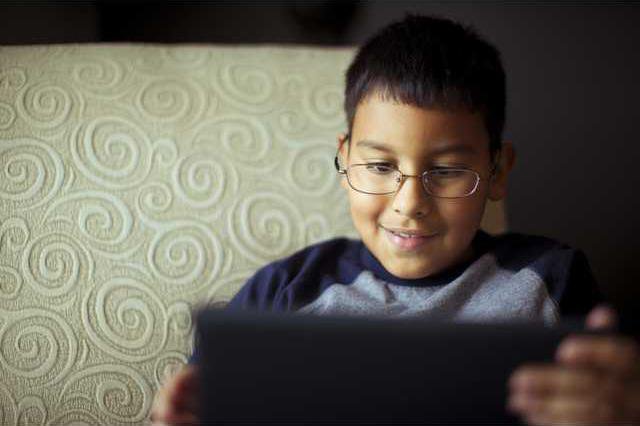?It's a question that burns in the back of many parents' minds: How much does the time children spend in front of screens impact them?
Forbes contributor Jordan Shapiro suggests the time to worry about the impact of screen time has passed.
"At this point, worrying about exposure to screens is like worrying about exposure to agriculture, indoor plumbing, the written word, or automobiles," Shapiro wrote. "The screen time rhetoric that accompanied the television when this technology was still in its formative age is no longer relevant."
Instead, Shapiro suggests what more and more researchers and parenting experts are beginning to clue into: To mitigate any risk to kids, responsible screen time has to begin with parents.
"Digital overload can impair a childs social, emotional and intellectual growth," Jane E. Brody wrote for the New York Times recently. "Young children learn by example, often copying the behavior of adults. I often see youngsters in strollers or on foot with a parent or caretaker who is chatting or texting on a cellphone instead of conversing with the children in their charge."
How children suffer when their parents are the ones glued to a screen is still up for debate, but preliminary research indicates that children learn best form face-to-face interaction something that's hard to get when Mom or Dad is mixing a quick email check into a conversation.
Yet Shapiro argues that parents delegate too much control to the devices themselves relying on parental control software to cut kids off rather than modifying behavior through parental intervention that could be as simple as, "Time for some fresh air, devices off!" When it comes from a parent rather than a tablet, kids learn resonsible behavior rather than irritation that a device stopped working.
"Telling your kids to stop playing video games is less about actually making them stop than it is about creating these voices (that tell us what to do)," Shapiro wrote. "Parents no longer need to worry about screen time, but they do need to worry about teaching their children how to live with screens."
Forbes contributor Jordan Shapiro suggests the time to worry about the impact of screen time has passed.
"At this point, worrying about exposure to screens is like worrying about exposure to agriculture, indoor plumbing, the written word, or automobiles," Shapiro wrote. "The screen time rhetoric that accompanied the television when this technology was still in its formative age is no longer relevant."
Instead, Shapiro suggests what more and more researchers and parenting experts are beginning to clue into: To mitigate any risk to kids, responsible screen time has to begin with parents.
"Digital overload can impair a childs social, emotional and intellectual growth," Jane E. Brody wrote for the New York Times recently. "Young children learn by example, often copying the behavior of adults. I often see youngsters in strollers or on foot with a parent or caretaker who is chatting or texting on a cellphone instead of conversing with the children in their charge."
How children suffer when their parents are the ones glued to a screen is still up for debate, but preliminary research indicates that children learn best form face-to-face interaction something that's hard to get when Mom or Dad is mixing a quick email check into a conversation.
Yet Shapiro argues that parents delegate too much control to the devices themselves relying on parental control software to cut kids off rather than modifying behavior through parental intervention that could be as simple as, "Time for some fresh air, devices off!" When it comes from a parent rather than a tablet, kids learn resonsible behavior rather than irritation that a device stopped working.
"Telling your kids to stop playing video games is less about actually making them stop than it is about creating these voices (that tell us what to do)," Shapiro wrote. "Parents no longer need to worry about screen time, but they do need to worry about teaching their children how to live with screens."



